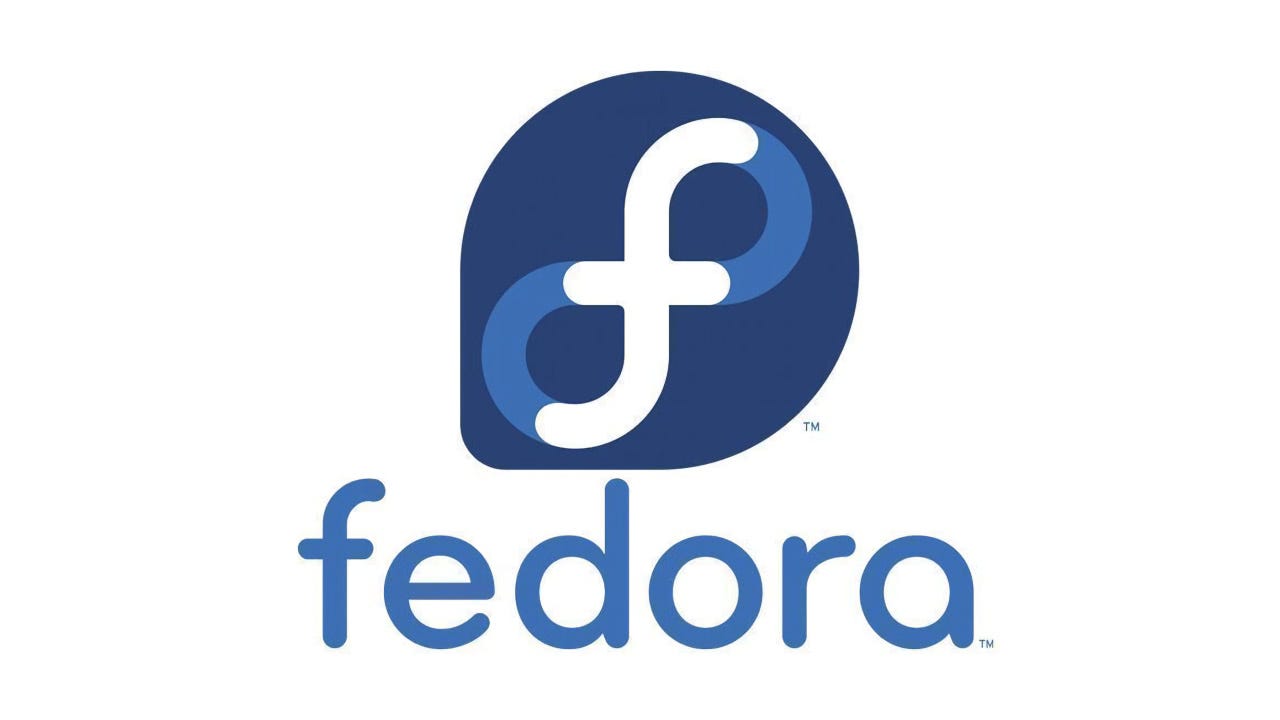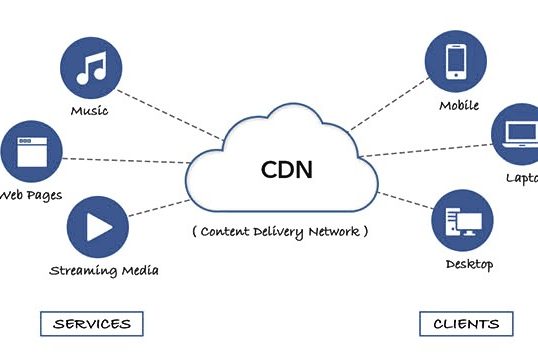
Table of Contents

Fedora OS
Fedora OS is a popular, open-source Linux distribution known for its cutting-edge features and frequent updates. While Fedora is often associated with desktop environments, it also has robust server capabilities, making it suitable for web server use. Fedora Server provides a flexible, secure, and scalable platform for running websites and web applications. Here’s an overview of Fedora OS in a web server context:
1. Overview of Fedora OS
- Community-Driven and Free: Fedora is developed by the Fedora Project and sponsored by Red Hat. It’s a free, community-driven Linux distribution that serves as an upstream (leading-edge) platform for Red Hat Enterprise Linux (RHEL).
- Frequent Updates: Fedora is a fast-moving distribution with a short release cycle (approximately every six months), offering the latest software versions and features.
- Multiple Editions: Fedora comes in different editions for various use cases, including Fedora Workstation for desktop use, Fedora OS Server for server environments, and Fedora CoreOS for container-based workloads.
2. Key Features for Web Servers
- Latest Software: Fedora provides the latest versions of server software like Apache, Nginx, PHP, MySQL, and PostgreSQL, which is ideal for users who want access to the most recent features and performance improvements.
- Modular Packages: Fedora Server uses a modular system that allows users to choose different versions of certain software (e.g., PHP or PostgreSQL) based on their specific needs.
- SELinux (Security-Enhanced Linux): Fedora comes with SELinux enabled by default, offering robust security by enforcing access control policies to prevent unauthorized access to server resources.
- Podman and Containers: Fedora is a leader in container technologies, supporting Podman (a daemon-less container engine) and Docker, making it suitable for hosting containerized web applications and microservices.
3. Advantages of Fedora OS for Web Servers
- Cutting-Edge Features: Fedora OS is known for being at the forefront of new technologies, making it a great choice for web server administrators who want to experiment with the latest advancements in server software.
- Stable Base for Development: Fedora’s rapid release cycle makes it ideal for developers who want to stay up to date with the newest programming languages, web frameworks, and tools.
- Modularity: Fedora’s modularity feature allows for greater flexibility in software versions, making it easy to run both stable and experimental versions of web server software like Apache, PHP, or MySQL.
- Containerization Support: Fedora is highly optimized for containers and cloud-native development. Its strong integration with Kubernetes, Podman, and Docker makes it an excellent choice for deploying web services in containerized environments.
- Security Focus: With SELinux, Fedora provides strong security by default, offering built-in protection against many types of attacks on web servers, such as unauthorized file access or escalation of privileges.
4. Common Web Server Setups on Fedora
Fedora OS supports a variety of popular web server stacks:
- LAMP Stack: Fedora OS can host the classic LAMP stack (Linux, Apache, MySQL/MariaDB, PHP/Perl/Python), providing a solid foundation for dynamic websites and web applications.
- LEMP Stack: Fedora OS also supports the LEMP stack (Linux, Nginx, MySQL/MariaDB, PHP/Perl/Python), which is a more lightweight and high-performance option for web hosting.
- Node.js and JavaScript Frameworks: Fedora OS makes it easy to set up environments for JavaScript frameworks like Node.js, React, Vue.js, and others for web development.
- SSL/TLS Certificates: With tools like Certbot, Fedora OS makes it easy to set up SSL/TLS certificates for HTTPS, ensuring secure web communication.
5. Advantages for Web Developers
- Frequent Releases: Fedora is known for its fast release cycle, which is ideal for web developers who want to work with the latest development tools, libraries, and languages.
- Development Tools: Fedora includes a wide range of development tools out of the box, such as GCC, Python, Perl, and Ruby, making it a developer-friendly platform for building web applications.
- Virtualization and Cloud-Ready: Fedora Server integrates well with cloud platforms and supports KVM (Kernel-based Virtual Machine), allowing developers to easily deploy web applications in virtualized or cloud-based environments.
6. Use Cases for Fedora as a Web Server
- Development and Staging Environments: Due to its cutting-edge nature, Fedora is ideal for development and staging servers where developers need the latest software to test their applications before moving them to production environments.
- Web Application Hosting: Fedora can be used to host web applications built with modern frameworks, such as Django, Ruby on Rails, or Laravel, offering support for the latest versions of the necessary software.
- Small to Medium Web Servers: Fedora’s security features and access to the latest software make it a good fit for small to medium-sized businesses that need web hosting services but do not require long-term support.
- Containerized Web Services: Fedora CoreOS, designed specifically for containers, is an excellent choice for hosting microservices and containerized web applications using Kubernetes or Podman.
7. Disadvantages of Fedora OS as a Web Server
- Short Lifecycle: Fedora’s short support lifecycle (around 13 months per release) can be a drawback for long-term production environments that need long-term stability. This means you must upgrade more frequently compared to distributions like CentOS or Ubuntu LTS.
- Less Stability: Because Fedora focuses on cutting-edge features, it may not be as stable as other enterprise-focused distributions like RHEL, CentOS, or Debian, making it less ideal for mission-critical web servers.
- Frequent Updates: Fedora’s rapid update cycle might be overwhelming for system administrators who prefer a more predictable, stable environment. Managing frequent updates can increase the potential for compatibility issues or breakages.
- Smaller Community for Server Use: While Fedora has a large and active community, much of it is focused on desktop and developer use cases, meaning there might be fewer resources and documentation for server-related issues compared to Ubuntu Server or CentOS.
8. Comparison with Other Server OSes
- Vs. CentOS/RHEL: Fedora is upstream of RHEL and CentOS, meaning it receives features and updates earlier, but it lacks the long-term stability and support that CentOS and RHEL provide. Fedora is better for development and testing, while CentOS and RHEL are ideal for production.
- Vs. Ubuntu Server: Fedora provides more cutting-edge software compared to Ubuntu, but Ubuntu Server has long-term support (LTS) versions, making it a more stable choice for long-term web hosting.
- Vs. Debian: Debian focuses more on stability and conservatism, whereas Fedora’s primary advantage is the availability of the latest technology. Fedora’s updates come faster, but Debian might be a better choice for environments that prioritize stability.
Applications of Fedora OS
Fedora OS is a versatile Linux distribution with a wide range of applications across different domains. Known for its cutting-edge features, Fedora is often used in development, server management, and innovative technology projects. Below are some key applications of Fedora OS:
1. Web and Application Servers
- LAMP/LEMP Stacks: Fedora can be used to host websites and web applications using popular stacks like LAMP (Linux, Apache, MySQL/MariaDB, PHP) and LEMP (Linux, Nginx, MySQL/MariaDB, PHP).
- Content Management Systems: It’s an excellent choice for hosting CMS platforms such as WordPress, Joomla, or Drupal, taking advantage of Fedora’s latest server software versions.
- SSL/TLS Web Hosting: With tools like Certbot, Fedora allows easy installation and management of SSL/TLS certificates for secure web communications.
2. Software Development
- Cutting-Edge Development Environment: Fedora provides the latest versions of programming languages like Python, Ruby, Node.js, and PHP, making it a go-to choice for developers who want access to the newest features.
- DevOps and CI/CD: Fedora is used in continuous integration/continuous delivery (CI/CD) environments with tools like Jenkins, GitLab CI, and Ansible, allowing developers to automate testing, building, and deployment of applications.
- Containerization: Fedora supports Docker, Podman, and Kubernetes, allowing developers to build, deploy, and manage containerized applications, making it ideal for DevOps workflows.
3. Virtualization and Cloud Computing
- Virtual Machines: Fedora is used as both a host and guest OS in virtualized environments using KVM, VirtualBox, or VMware for deploying and testing virtual machines.
- Cloud Infrastructure: Fedora is supported by major cloud platforms like AWS, Google Cloud, and Microsoft Azure. It’s used for developing and deploying scalable cloud-based applications.
- Fedora CoreOS: Fedora CoreOS is optimized for cloud and container-native environments, ideal for hosting microservices and applications in cloud infrastructure.
4. Desktop Workstations
- Cutting-Edge Desktop OS: Fedora Workstation is favored by developers and power users as a desktop operating system because of its fast access to the latest open-source software.
- Programming and Design: With support for tools like GCC, Clang, GIMP, Blender, and Krita, Fedora Workstation is widely used for software development, graphics design, and multimedia editing.
5. Network and Security Services
- Firewalls and Security: Fedora is used to build secure servers with SELinux (Security-Enhanced Linux) enabled by default, providing high-level security controls for network services and application security.
- DNS and DHCP Servers: Fedora can be configured as a DNS or DHCP server to manage and distribute IP addresses in network infrastructures.
- VPN and Proxy Servers: Fedora is suitable for configuring VPN or proxy servers, providing secure, encrypted connections for remote access.
6. Scientific Research and High-Performance Computing (HPC)
- HPC Clusters: Fedora is used in HPC environments for scientific research and simulations. With access to the latest computing tools like OpenMPI and GNU Parallel, it’s favored for data-intensive tasks.
- Machine Learning: Fedora provides support for frameworks like TensorFlow, PyTorch, and SciPy, making it useful in machine learning and data science projects.
7. Game Development and Hosting
- Game Servers: Fedora can be used to host game servers for popular multiplayer games, providing a reliable platform for gaming communities.
- Game Development: Developers use Fedora’s cutting-edge tools and libraries to develop and test video games using engines like Unreal Engine and Godot.
8. Educational Environments
- Learning and Research Tools: Fedora provides access to a wide range of educational tools for learning programming, system administration, and research in fields like AI, robotics, and data science.
- University and Research Labs: Many universities use Fedora in research labs and teaching environments to give students hands-on experience with the latest open-source technologies.
9. IoT and Embedded Systems
- IoT Devices: Fedora can be adapted for Internet of Things (IoT) devices and embedded systems, making it useful in projects that require secure and modular Linux-based platforms.
- Edge Computing: Fedora CoreOS and Fedora IoT are used for edge computing deployments, where computing resources are distributed closer to the source of data in networks.
10. Media and Entertainment
- Video and Audio Editing: Fedora supports a wide range of open-source multimedia tools like Kdenlive, Audacity, and Ardour, making it popular in video production and audio engineering.
- 3D Modeling and Animation: Artists and animators use Fedora with software like Blender and Maya for 3D modeling, rendering, and animation.
Advantages of Fedora OS
- Cutting-Edge Technology
- Fedora is known for being at the forefront of Linux development, providing access to the latest software, kernels, and features shortly after they are released. This is ideal for developers and tech enthusiasts who want the newest features and tools.
- Security-Focused
- Fedora comes with Security-Enhanced Linux (SELinux) enabled by default, which provides robust security by enforcing strict access controls. This makes Fedora one of the most secure Linux distributions out of the box.
- Community-Driven and Open Source
- Fedora is developed by a large, active community and supported by Red Hat. It’s completely free and open-source, meaning users can freely access, modify, and distribute the OS.
- Excellent Developer Support
- Fedora is a favorite for developers because it offers cutting-edge development tools, languages, and libraries, including Python, Node.js, Ruby, GCC, and more. The availability of the latest packages makes Fedora a strong development platform.
- Container and Cloud-Friendly
- Fedora has excellent support for containerization and cloud technologies. It supports Docker, Podman, Kubernetes, and Fedora CoreOS, making it an ideal OS for cloud-based applications, microservices, and DevOps workflows.
- Modular Software Management
- Fedora’s modularity allows users to choose specific versions of software to run on their system. For instance, users can select different versions of PHP or Node.js without affecting the system’s stability.
- Wide Range of Software
- Fedora’s repository includes a wide selection of software, from productivity tools to development environments, multimedia applications, and scientific tools. The DNF package manager is efficient and easy to use for managing software.
- Regular Updates
- Fedora provides regular updates with new features, software improvements, and security patches. Its short release cycle (every six months) ensures users have access to the most current software.
- Strong Red Hat Support
- Fedora serves as the upstream version of Red Hat Enterprise Linux (RHEL), meaning that innovations and improvements in Fedora are often included in RHEL. This makes Fedora a good option for those wanting to stay aligned with the Red Hat ecosystem.
- Multiple Editions
- Fedora offers different editions tailored for various use cases:
- Fedora Workstation: Optimized for desktop use.
- Fedora Server: For server environments.
- Fedora CoreOS: Designed for container-based workflows.
Disadvantages of Fedora OS
- Short Support Lifecycle
- Each version of Fedora is only supported for about 13 months, requiring users to upgrade regularly to stay up to date. This might be inconvenient for users looking for a long-term stable system, unlike distributions like Ubuntu LTS or CentOS, which offer longer support cycles.
- Not Ideal for Beginners
- Although Fedora has a friendly user interface, it may not be the best choice for Linux beginners due to its frequent updates and focus on more advanced features. Users unfamiliar with Linux may find it harder to navigate than more beginner-friendly distributions like Ubuntu or Linux Mint.
- Frequent Updates
- Fedora’s frequent updates can be a double-edged sword. While it ensures you always have the latest features, it may require more maintenance to keep the system up to date, particularly for users who prefer a more stable, long-term system.
- Limited Proprietary Software
- Fedora focuses on providing free and open-source software and does not include proprietary software or drivers by default. This can be a disadvantage for users who need proprietary drivers (e.g., NVIDIA graphics drivers) or software like Google Chrome. However, they can be added manually.
- Less Stable for Production
- Due to its cutting-edge nature, Fedora may not be as stable as other distributions like Debian or CentOS for production environments. The rapid release cycle means there is a higher chance of encountering bugs or compatibility issues.
- Smaller User Base for Servers
- While Fedora is well-suited for servers, its community and documentation around server use cases are not as extensive as those of Ubuntu Server or CentOS, which are more widely adopted in production server environments.
- Software Compatibility
- Although Fedora has a large repository, some software may not be available or supported due to its strict policies on open-source software. Users may need to seek out third-party repositories for certain applications or proprietary codecs, such as those required for media playback.
- Not an LTS Distribution
- Fedora is not a long-term support (LTS) distribution. Users looking for a more stable, long-term operating system for production use or servers may prefer Ubuntu LTS, Debian, or RHEL.
Conclusion
Fedora OS is a powerful and flexible Linux distribution for web servers, particularly suited to developers and organizations looking for a cutting-edge environment with access to the latest software and technologies. Its support for modular software, containerization, and cloud-native technologies makes it well-suited for development, staging servers, and web applications that benefit from newer features. However, its short support lifecycle and frequent updates may not be ideal for production environments requiring long-term stability. Fedora OS is a flexible, cutting-edge platform suited for a variety of applications, from web hosting and software development to cloud computing, virtualization, and scientific research. Its regular updates, modularity, and strong security features make it a go-to choice for developers, system administrators, and IT professionals looking for a modern Linux solution. Fedora OS is an excellent choice for those who value cutting-edge features, strong security, and a developer-friendly environment. However, its short lifecycle and frequent updates make it less suitable for users seeking long-term stability or a beginner-friendly experience. For advanced users, developers, and those looking to stay up-to-date with the latest in Linux, Fedora offers a powerful and flexible platform.





